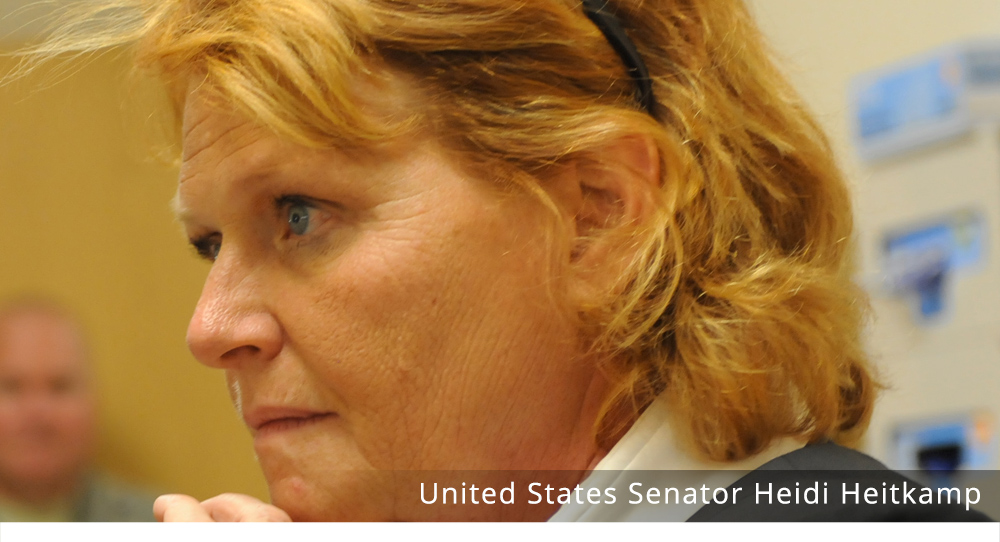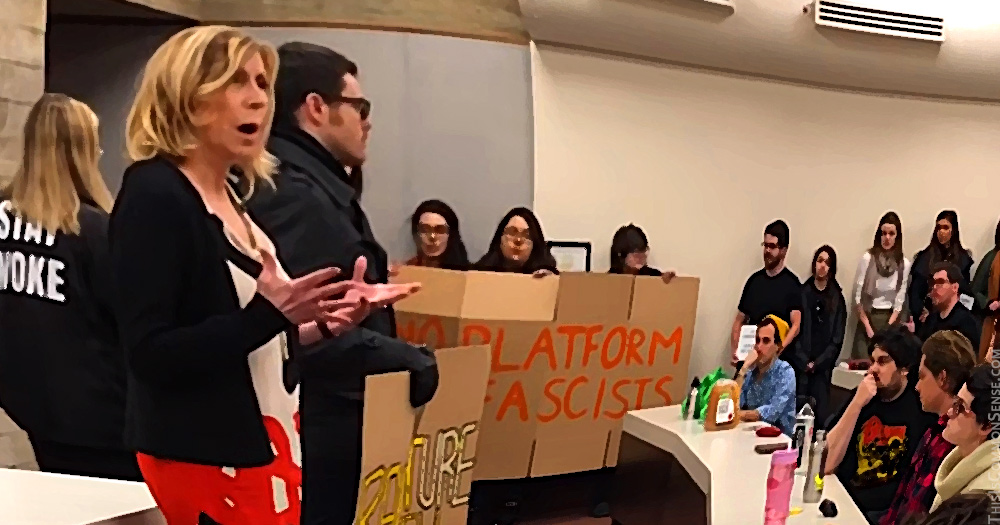Rob Port’s job is to have an opinion. Opinions breed counter-opinions. Unfortunately, they sometimes conjure up concerted campaigns to pressure opinion-makers to shut up.
So, no surprise that his reporting — on his radio talk show and in print — on the doings and not-doings of North Dakota’s junior U.S. Senator, Heidi Heitkamp, a Democrat, has riled up nasty “feedback.”
Earlier this month, Mike McFeely, a “left of center” columnist at the Fargo Forum, where Port also writes, published a column calling Port’s “obsession” with Heitkamp “suffocatingly limited and boring” and acknowledging, “I have often voiced my concerns about the one-trick-pony nature of Port to my bosses.”
Port notes that McFeely’s criticisms are based on subject matter, not content, and suggests that journalism doesn’t spend too much time holding politicians accountable.
It gets nastier, though. Senator Heitkamp’s brother, Joel, is also in the radio business, managing a competing station and hosting one of its morning programs. Mr. Heitkamp got his mitts on Mr. Port’s divorce papers and tweeted out, “The #FargoForum is paying him 71K for part time work! What do the full-time employees get? #Wow #790KFGO #wishicould.”
Meanwhile, here comes the Senate Leadership Fund, associated with Senate Majority Leader Mitch McConnell (R‑Ky.), to suggest the FCC remove Heitkamp’s station’s license due to his advocacy for his sister’s campaign.
Port, for his part, objects to the corrupt “help.”
“The FCC really has no grounds for getting involved,” he argues. “Free people should be allowed to speak freely.”
In the chaos of our current political battles, Rob Port stands on principle, offering equal freedom to his sleazy opponent.*
This is Common Sense. I’m Paul Jacob.
* For the complete story, check out this weekend’s Townhall column, and the links at the column’s splash page.











